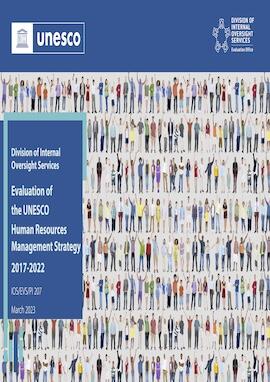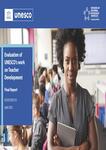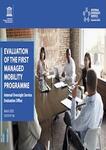Page Header

Downloads:
6
Evaluation of the UNESCO Human Resources Management Strategy, 2017-2022
Overview
The evaluation explored and analysed the relevance, coherence, effectiveness and efficiency of the HRM Strategy, 2017-2022. It concluded that the HRM Strategy was relevant for the Organization and contributed to fulfilling UNESCO’s mandate and objectives despite a low level of awareness of the Strategy from UNESCO staff and affiliate workforce members and an increasing number of personnel on non-staff contracts, which are not covered by the Strategy. The HRM Strategy was found to be coherent with UNESCO internal policies as well as with UN and other external frameworks. In terms of effectiveness, the Bureau of HRM set in motion several initiatives as part of the HRM Strategy whose progress varied. Elements such as the competency framework, learning and development, ethics/standards of conduct, Managed Mobility, and gender parity were deemed to have registered the most progress between 2017 and 2022. On the other hand, some elements of the HRM Strategy, such as staff well-being, workforce planning, culture of transparency/accountability, the internal justice system and recruitment and performance management, were perceived less favourablyReport Details
| Year Published | |
| Type | |
| Theme/s | |
| Joint | No |
| Partner/s | N/A |
| Consultant name | |
| Agency Focal Point | Claudia Ibarguen |
| Focal Point Email | c.ibarguen@unesco.org |
| Managed by Independent Evaluation Office | Yes |
| Geographic Scope | Global |
YOU 'RE READING
Evaluation of the UNESCO Human Resources Management Strategy, 2017-2022









